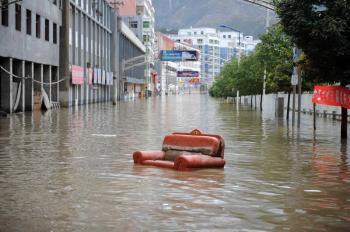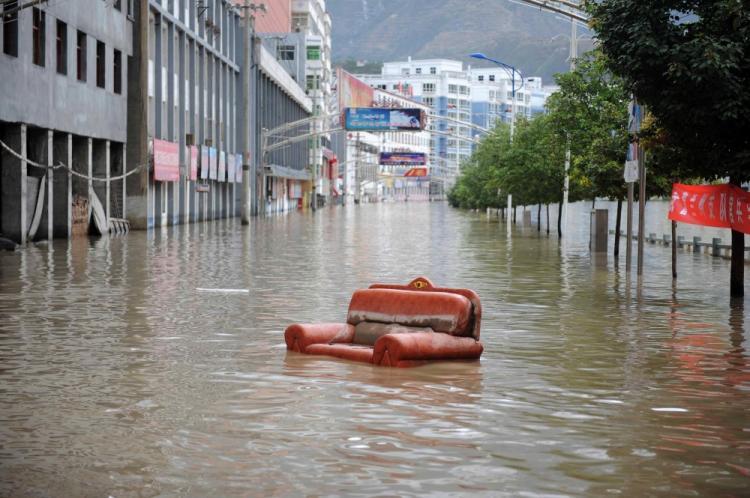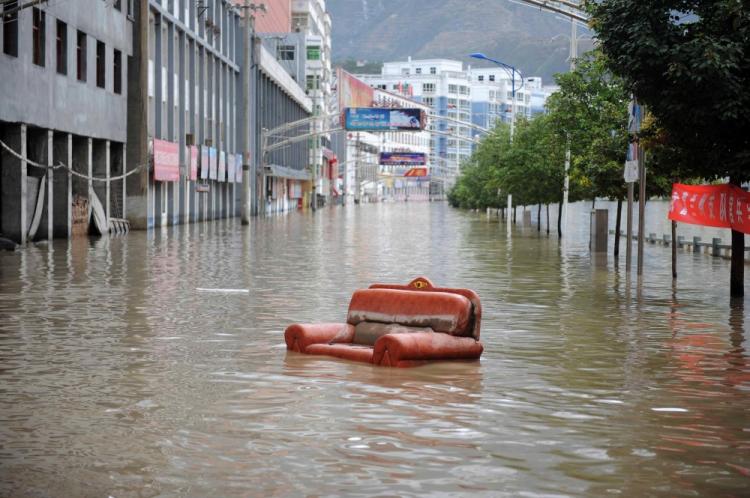[ Officials Force People to Donate to Flood Relief in China ]
This year’s summer rains have been a season of devastation and suffering in China as rivers have often registered record-breaking flood levels. Among multiple disasters, the recent mudslides in northwestern China’s Gansu Province stand out.
Thousands died there who would be alive today if the recommendations of experts had been followed. The failure to protect the population in Gansu Province calls attention to the way in which state policies have combined with this year’s heavy rains to produce an especially destructive flood season in China.
On Aug. 7, mudslides engulfed several villages in Zhouqu County in Gansu Province. As of Aug. 16, official media reported 1,254 deaths with 490 missing. Local residents said the death toll was much higher.
An investigation by the Ministry of Land and Resources in December 2008 had named Zhouqu County as the place in China most in danger from landslides. According to an article in the magazine Twenty-First Century Business Commentary, because of the county’s special geological environment, geologists recommended relocating the residents of 22 villages.
Such a massive relocation would not have been cheap and was more than the county could afford. A report to the Provincial People’s Congress in January 2009 estimated the project would cost 340 million yuan (approximately US$50 million). In 2008, the county’s total revenue was 23.8 million yuan (US$3.5 million).
Clearly, having Zhouqu County fund this was not possible. The officials of Gansu Province would have needed to act promptly to remove the 130,000 residents of Zhouqu County from the dangers predicted by the Ministry of Land and Resources.
But nothing was done. The situation in Zhouqu County is unique only in the staggering loss of life suffered on a single day. A lack of will or foresight needed to protect the population in the planning of China’s water development has been a general problem, according to one expert.
Dr. Wang Weiluo is an engineer who participated in the Three Gorges project-feasibility study in the 1980s and has since closely followed how the Chinese state uses its water resources. He holds a doctorate degree in land-use planning and currently works for an engineering firm in Germany.
According to Dr. Wang, the leaders of Chinese regional governments hope to use development, in particular the development of water resources, to display political achievements. They often pay attention only to immediate personal benefits they gain from construction projects and ignore the long-term interests of the citizenry.






